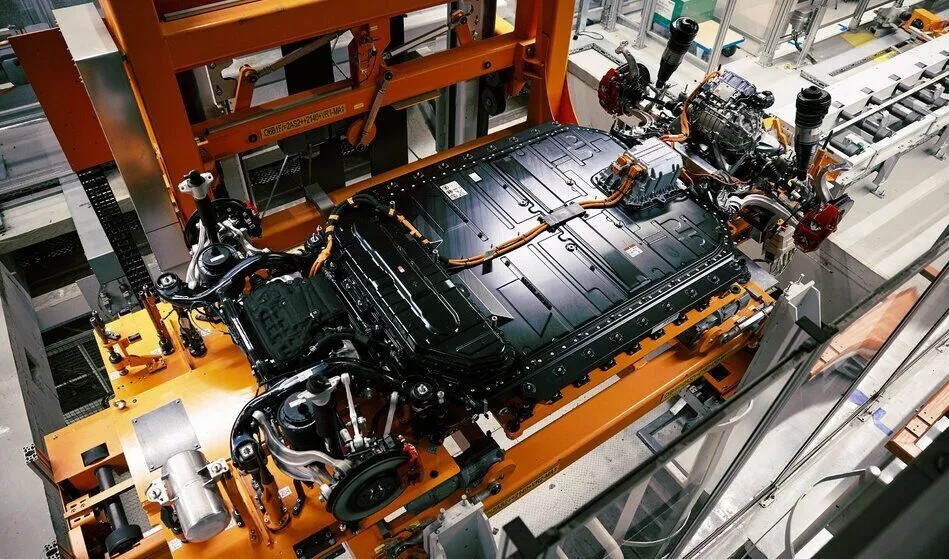How Long Do Electric Car Batteries Last?
Understanding Battery Lifespan and Tips to Prolong It
As a leading EV charger manufacturer in China, LiCB Charge delivers reliable AC and DC electric vehicle charging stations along with comprehensive charging solutions.
As electric vehicles (EVs) and charging stations become increasingly common, a key question arises: How long do electric car batteries last? The battery is the heart of any EV, powering the vehicle and ensuring optimal performance. With ongoing advancements in battery technology, EVs are becoming a sustainable and practical alternative to traditional gasoline cars. This article explores the typical lifespan of electric car batteries, factors influencing their longevity, and practical tips to extend their life.
Lifespan of Electric Car Batteries
On average, electric car batteries last between 10 and 20 years—roughly matching or exceeding the average age of vehicles on American roads (about 12.5 years). While most EV manufacturers offer warranties around 8 years or 100,000 miles, real-world data shows batteries often last much longer when properly cared for. As battery technology continues to improve, EV owners can expect longer battery lifespans in the future.
What Affects Electric Car Battery Life?
1. Battery Chemistry
Different lithium-ion battery types—such as nickel-cobalt-aluminum (NCA) or lithium-iron-phosphate (LFP)—have varying durability and degradation rates. Though lithium-ion batteries are common for their energy density and reliability, all experience gradual capacity loss over time. The specific chemistry impacts how quickly this degradation occurs.
2. Driving Habits and Usage
Aggressive acceleration, frequent hard braking, and driving in hilly or rough terrain increase battery strain, accelerating wear. Conversely, steady and moderate driving helps preserve battery capacity over time.
3. Temperature
Extreme heat accelerates chemical reactions inside the battery, causing faster degradation. Cold temperatures reduce performance and range, making the battery work harder. Modern EVs feature thermal management systems to regulate battery temperature, but prolonged exposure to harsh climates can still shorten battery life.
4. Weight and Load
EV batteries are heavy—averaging about 1,000 lbs—which contributes to the overall vehicle weight (4,300 to 5,000 lbs). Heavier batteries store more energy, potentially extending driving range and battery longevity. However, towing or carrying heavy loads can reduce battery range and lifespan due to increased energy demands.
Tips to Prolong Your EV Battery Life
1. Avoid Charging to 100% Regularly
Lithium-ion batteries last longer when charged between 20% and 80% capacity. Frequent full charges accelerate degradation, so reserve 100% charging for long trips only.
2. Park in a Garage or Shade
Protect your battery from extreme temperatures by parking indoors or in shaded areas. This helps maintain optimal battery temperature and reduces stress on the thermal management system.
3. Drive Smoothly
Avoid aggressive driving behaviors like rapid acceleration and hard braking. Use steady speeds and regenerative braking to ease battery strain and extend its lifespan.
4. Follow Manufacturer Charging Guidelines
Use recommended charging methods—such as slower Level 2 chargers for daily use—rather than frequent fast charging, which can wear the battery faster. Always consult your EV’s manual for best practices.
5. Utilize Regenerative Braking
This feature recovers energy during braking and feeds it back into the battery, reducing energy consumption and prolonging battery life.
Conclusion
Electric car batteries typically last 10 to 20 years, and with proper care, many EV owners will find their batteries outlast the vehicle itself. Understanding factors like battery chemistry, driving habits, temperature effects, and charging practices can help maximize battery life and improve the sustainability and cost-effectiveness of electric vehicles. As technology advances, EV batteries will continue to improve, offering longer-lasting and more reliable performance on the road ahead. Know more about Google SEO Directory





Comments